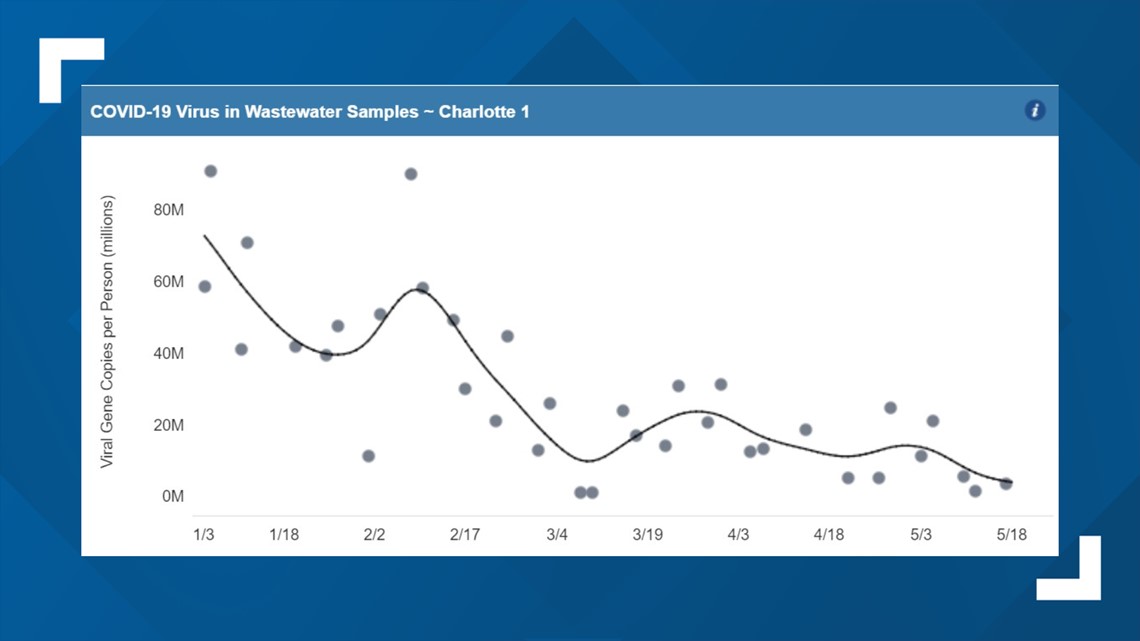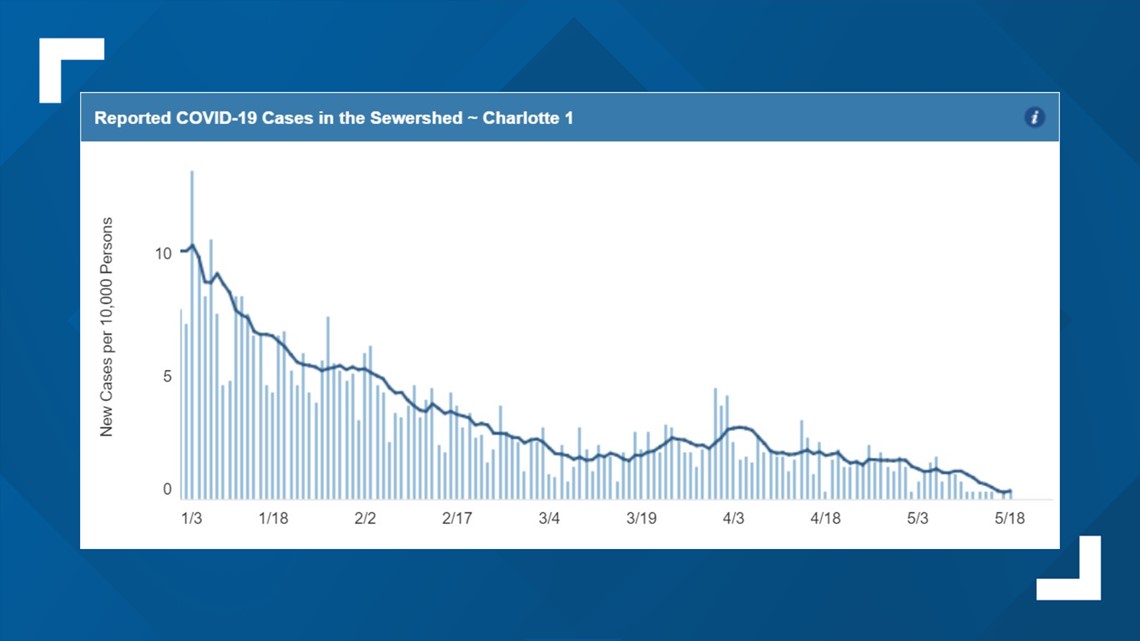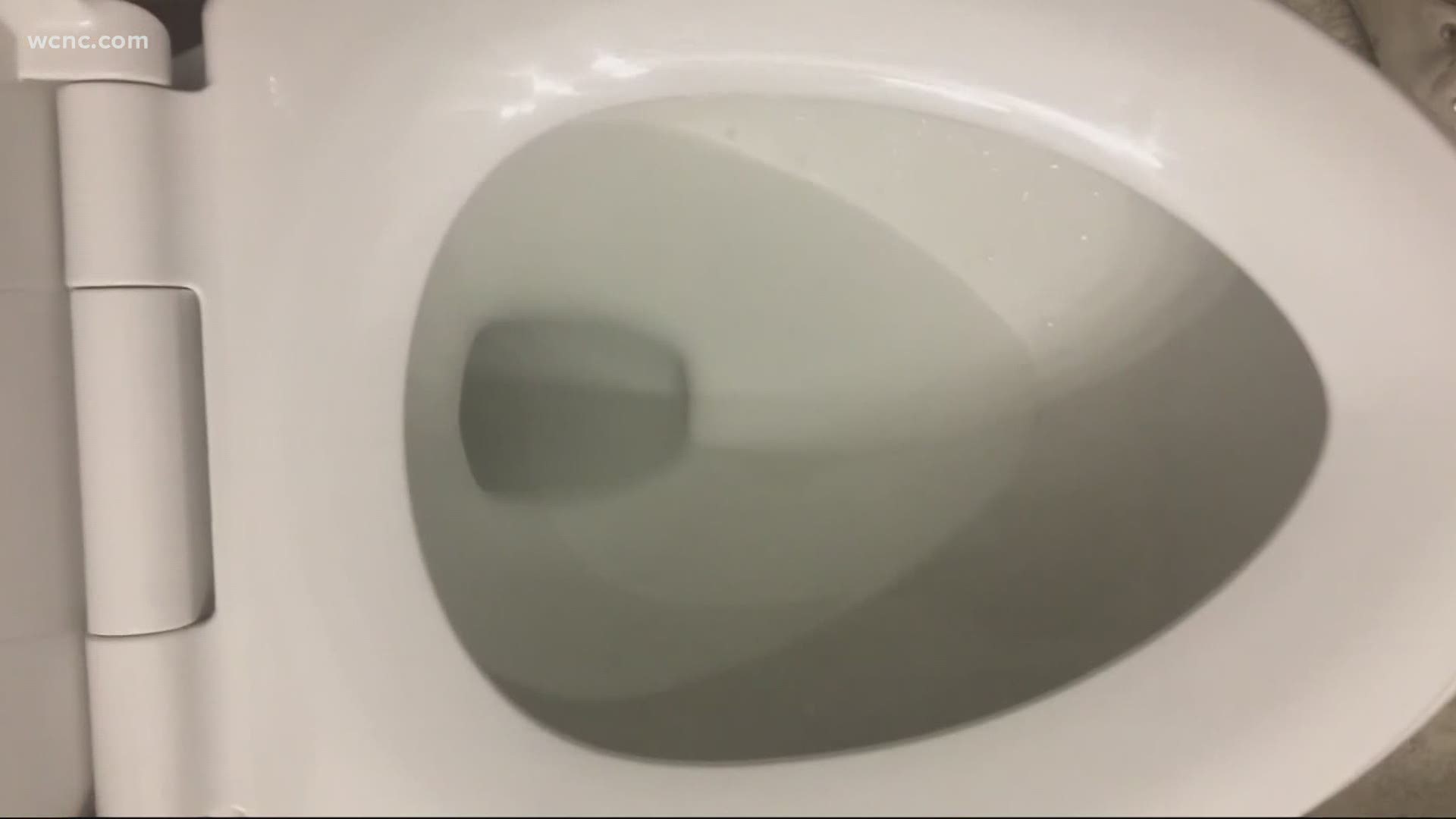CHARLOTTE, N.C. — As COVID-19 testing levels decline, North Carolina is turning to a new way to track the virus's presence in the community. As strange as it sounds, health officials could be getting a sample, every time someone flushes.
Earlier this month, North Carolina's Department of Health and Human Services added a new tool called "wastewater monitoring" to its coronavirus dashboard. The monitoring is made possible because the coronavirus sheds in a person's waste.
Dr. Zack Moore, State Epidemiologist with NCDHHS, expects the system to fill the information gaps as fewer people come in for traditional testing. The information also goes to the Centers for Disease Control and Prevention as part of a nationwide monitoring program.
"This is a really exciting new technology and a new way to do monitoring for COVID," Moore said. "Instead of going door to door and trying to swab everyone's noses in a community, you can now track the amount of virus that's in the wastewater and use that to see when activity is going up or going down."
Right now, NCDHHS collects data from 11 sample sites, two of which are in the Charlotte area. According to the sample map, one Charlotte site contains wastewater from approximately 69,000 people in the Huntersville and Cornelius area. The second site covers more than 182,000 people and covers the East to Southeast Charlotte area.
UNC Charlotte professor Dr. Mariya Munir helps collect and test those Mecklenburg County samples.
"Once the wastewater comes into the lab, we process that wastewater, concentrate it down, and from there, we do RNA extraction," Munir said.
In a separate project, UNCC has been sampling wastewater on its own campus for months, and Munir said it is proof the system works.
"We were able to prevent many outbreaks across our campus. So, definitely it was helpful," Munir said.
Looking at how the wastewater COVID-19 data lines up with regular covid testing, the new monitoring system looks quite accurate.




NCDHHS hopes to expand on its 11 sample sites and could potentially use the system to track for other diseases in the future, Moore said.
Contact Vanessa Ruffes at vruffes@wcnc.com and follow her on Facebook, Twitter and Instagram

